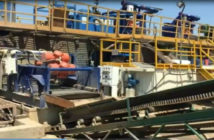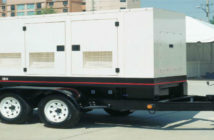The liquefied natural gas market is highly fluctuating market due to larger dependency on oil prices. Mostly, spot price of liquefied natural gas in emerging markets is set via oil linkage. Moreover, changing trade and sales strategies across every region is propelling growth of the market. For instance, in Europe, wholesale gas is sold via long term contracts, whereas, in North America, gas prices are set at liquid trading hubs.
Request For Sample Copy of this Research Report :
https://www.coherentmarketinsights.com/insight/request-sample/985
Among application, power generation segment held highest revenue share in 2016 and projected to retain its dominance over the forecast period. This is mainly due to shifting preference towards cleaner source of energy for power generation. According to Mexico’s National Energy Ministry (SENER), more than 60% of Mexico’s electric capacity additions between 2016 and 2020 are projected to come from natural gas-fired power plants.
Liquefied natural gas is an odorless and colorless liquid, which is formed by cooling natural gas to -1620C. The liquefaction process shrinks the volume of gas by 600 times, making it easier to store and ship. When liquefied natural gas reaches to its destination, it is again converted into gas by regasification process and transported through vessels and pipes to end-use consumers. Liquefied natural gas is an emerging fuel due to its cleanest burning nature as compared to petrol, diesel, and other fuels. Key drivers such as increasing demand for clean source of energy by end-use industries, government initiatives to strengthen gas pipeline infrastructure, and significant growth in global natural gas liquefaction capacity are expected to fuel growth of the global liquefied natural gas market over the forecast period. According to International Gas Union report, the global nominal natural gas liquefaction capacity is increased to 336.7 million tons per year in 2017, which was accounted to 304.4 million tons per year in 2015.
Asia Pacific accounted for highest revenue share in the global liquefied natural gas market in 2016, and is expected to retain its dominance over the forecast period. This is mainly due to significant growth in natural gas liquefaction capacity in countries such as Australia, Malaysia, and Indonesia among others. According to International Gas Union report, in 2016, Australia and Malaysia exported around 44 million metric tons and 25 million metric tons of LNG respectively and accounted as a major player after Qatar in LNG export. The region is estimated as the fastest growing region, witnessing a CAGR of 13.0% over the forecast period.
According to a study by Coherent Market Insights, the global liquefied natural gas market was valued at US$ 7.23 billion in 2016 and is expected to witness a CAGR of 12.8% in terms of revenue over the forecast period (2017 – 2025).
Asia Pacific held highest revenue share of 38% in the global liquefied natural gas market, in 2016 and the region is projected to maintain its dominance over the forecast period. Middle East accounted for the second largest revenue share in global liquefied natural gas market in 2016 and is expected to maintain its position over the forecast period.
Major Players in the Global Liquefied Natural Gas Market
The major players operating in the global liquefied natural gas market include Royal Dutch Shell, ExxonMobil, Chevron, Total SA, BP Plc, PetroChina, China Petroleum and Chemical Company, and Conoco Philips. Key players are strategically investing in the liquefied natural gas market to enhance their product portfolio through collaboration, joint ventures, and merger & acquisitions. For instance, in 2017, Qatar Petroleum’s Wave LNG Solutions and Shell Gas & Power Developments B.V. (Shell) signed a framework agreement to develop liquefied natural gas (LNG) marine fueling – or bunkering – infrastructure at strategic shipping locations across the globe.
Request For Customization as per Your Need :
https://www.coherentmarketinsights.com/insight/request-customization/985




